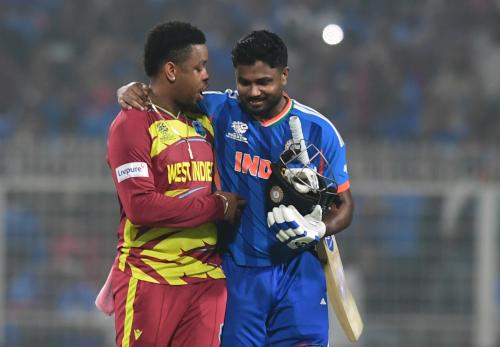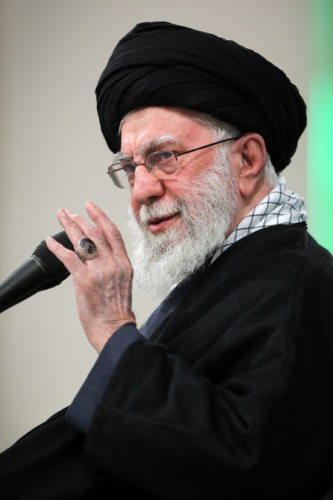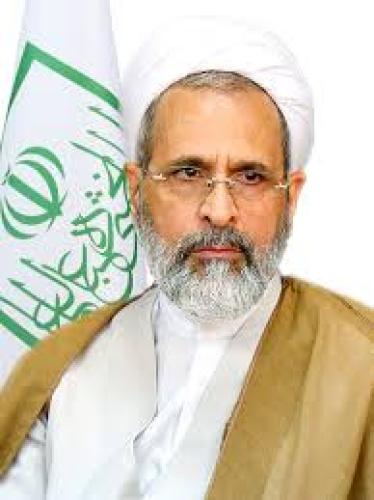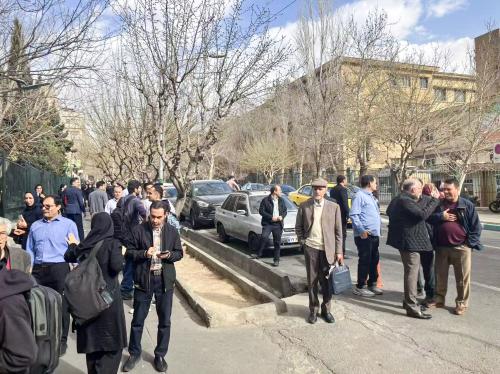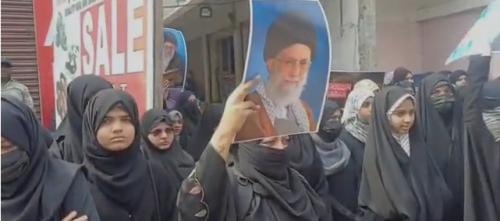SUPRIYA RAMESH New Delhi, April 9 (IANS) The Supreme Court recently declined to entertain a petition jointly filed by 14 political parties alleging misuse of investigative agencies like the Central Bureau of Investigation (CBI) and Directorate of Enforcement (ED) in arresting opposition leaders, and sought guidelines on the arrest. The political parties in the plea, which now stands withdrawn, had sought guidelines to fulfill and realise the guarantee of personal liberty entrenched in Article 21 of the Constitution, for all citizens, including those targeted for exercising their right to political dissent and for performing their duties as the political opposition. The political parties that petitioned the apex court were - Congress, DMK, RJD, BRS, Trinamool Congress, AAP, NCP, Shiv Sena (UBT), JMM, JD(U), CPI(M), CPI, Samajwadi Party, National Conference, together representing 45.19 per cent of the votes cast in the last state/UT assembly elections, and 42.5 per cent of the votes cast in the 2019 General Elections, and holding power in 11 states/UTs. Even though the plea now stands withdrawn after the apex court refused to deal with it, the most intriguing question that arises here is the constitutionality of the CBI. IANS dug deeper to find out how the CBI was formed and why the retired Gauhati High Court chief justice I.A. Ansari had, in 2019, reiterated his 2013 judgement that the probe agency is an unconstitutional body, which threatens India's federal structure. Drafting of Entry 2 (now 8) On August 29, 1949, when the then Chairman of the Drafting Committee of the Indian Constitution, B.R. Ambedkar had re-drafted entry 2 from "Central Intelligence Bureau" to "Central Bureau of Intelligence and Investigation", he had added two words - "and Investigation". According to Ambedkar, the significance of this addition was that "at the Union office there should be a sort of Bureau which will collect all information with regard to any kind of crime that is being committed by people throughout the territory of India and also make an investigation as to whether the information that has been supplied to them is correct or not and thereby be able to inform the Provincial Governments as to what is going on in the different parts of India so that they might themselves be in a position to exercise their Police powers in a much better manner than they might be able to do otherwise and in the absence of such information". However, the members of the Constituent Assembly had opposed the idea. Several contentions were made and many questions were raised. It was contended that the words "and Investigation" seem to appear to give an ambiguous effect. "Do these words "and investigation" mean that the Bureau of Investigation was merely to carry out the investigation? I submit that the duty of the Union Government would be to maintain a Central Intelligence Bureau," Naziruddin Ahmad, a member of the Constituent Assembly had contended. It was Ahmad's argument that if the Central Government is also allowed to investigate, the result would be that for a single crime, there must be two parallel investigations, one by the Union Government and the other by the State Government. He had said: "The result of this would be that there will be a clash and nobody will know whose charge-sheet or final report will be acceptable." Ahmad had urged that if there are two Bureaus only then there could be no difficulty and there will be no clash. He said: "...let us have as many Bureaus as you like but if you want investigation, it will be inviting conflict." "If you keep the investigation within this entry, it should be the Central Bureau of Intelligence, as well as the Bureau of Investigation," he had added. These amendments were not accepted by Ambedkar, who had said that these (amendments) seem to be the result of a muddled head. Clarifying his point, Ambedkar said that the word "investigation" here does not permit and will not permit the making of an investigation into a crime because that matter under the Criminal Procedure Code (CrPC) is left exclusively to a police officer. "Police is exclusively a State subject; it has no place in the Union List. The word "investigation" therefore is intended to cover general enquiry for the purpose of finding out what is going on. This investigation is not investigation preparatory to the filing of a charge against an offender which only a police officer under the Criminal Procedure Code can do," he had elucidated. On the said assurance of Ambedkar, the Constituent Assembly had then, on that day, adopted the amendment "Central Bureau of Intelligence and Investigation" and entry 2 was then added to the Union list. Question mark on CBI's constitutional validity Now called the "Central Bureau of Investigation", was never constituted under any statute until an executive order was issued by the secretary of home affairs V. Vishwanath on April 1, 1963, with no backing from the law. Speaking with IANS, Supreme Court advocate Dr. L.S. Chaudhary said: "If somebody has committed an offence, it is not that anybody in any way can punish the person. There is a legal framework and procedure established by the law, which has to be followed and is also a constitutional guarantee under Article 21 of the Constitution." "We raised the constitutional validity of the CBI on two counts. One was that it has not been created under any law and the second was that Police is a State subject and the Central government cannot carry out Police functions," Chaudhary added. Justice Ansari of the Gauhati High Court had, in 2019, reiterated his 2013 judgement saying that "the very constitutionality of the CBI is questionable, and this question has to be answered by the Supreme Court". A division bench, presided over by Justice Ansari, had held CBI's actions as "unconstitutional". It is to be noted that while the judgement had created quite a stir, it was immediately stayed by then Chief Justice of India P. Sathasivam at his residence, and has remained that way. Ansari's 2013 judgement had set aside the impugned resolution, wherein the probe agency was claimed to have been established in 1963 under the Delhi Special Police Establishment Act (DSPE). "We hereby set aside the impugned judgement and order, dated 30.11.2007, passed, in WP (C ) No. 6877/2005, and while we decline to hold and declare the DSPE Act, 1946, is not a valid piece of legislation, we do hold that the CBI is neither an organ nor a part of the DSPE and the CBI cannot be treated as a 'police force' constituted under the DSPE Act, 1946," the bench had said. "Police is a State subject under the Constitution," Chaudhary told IANS, adding that the purpose of creating CBI by Ambedkar was to collect the statistical data only and not to investigate the crime. Chaudhary said that CBI was created just to collect the statistical data as to whether information that has been supplied by the state governments to the Parliament is correct or not. According to the Gauhati High Court, entry 8 does not empower the CBI to enter a state and investigate crimes alleged to have been committed there. While the matter was stayed by the Supreme Court, Justice Ansari had said that it cannot be considered "settled in law" since the apex court has never really discussed or decided the matter. Something striking is that only recently, Prime Minister Narendra Modi expressed his unwavering support for central probe agencies in the fight against corruption, emphasising the government's determination to combat corrupt practices. Modi urged officers to take action against corrupt individuals, no matter how influential, without hesitation. He made these comments during a gathering to celebrate the 60th anniversary of the CBI, where he encouraged officers to not be deterred by the corrupt power and the environment they create to undermine the credibility of investigating agencies.
When CJ of Gauhati HC had declared CBI to be unconstitutional
- by Rinku
- April 09, 2023 2 minutes
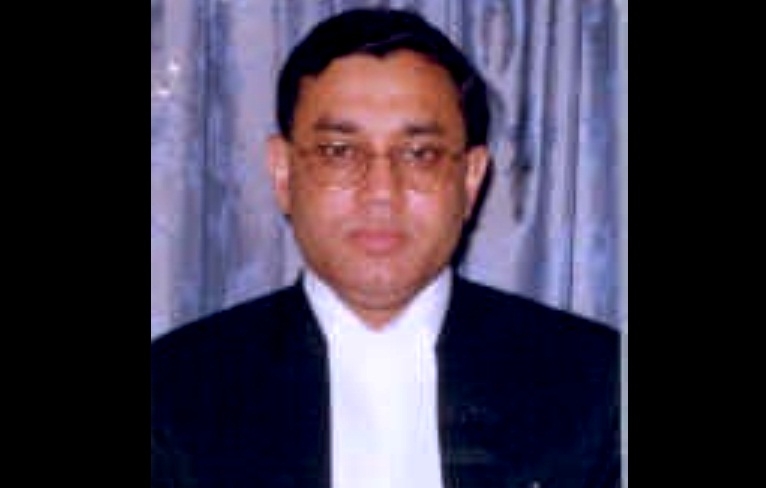
Gauhati High Court chief justice I.A. Ansari.(photo: kohimahighcourt.gov)




